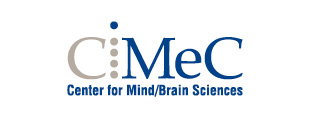Overview | Reserach directions | Members | Publications | Grants | Ongoing collaborations | Web
Overview
Neuroeconomics, experimental economics, game theory. We study human behaviours emerging from the interplay of cognitive and emotional systems. Our research agenda includes two main projects. The first one concerns the role of emotions in decision-making, and the second is aimed at investigating the relational complexity in social interaction. Our objective is to apply robust methods and findings from behavioural decision theory to study the brain structures that contribute to forming judgments and decisions, both in an individual and in a social context. We study:
- the role of counterfactual emotions, such as regret and envy, in decision making;
- the neural basis of bounded rational behaviour, limits in depth of strategic reasoning;
- the neural correlates of individual and social uncertainty (disposition effect, aspiration level, strategic uncertainty);
- how the brain encodes learning signals: regret/fictive learning, reputation building;
- impaired decision making in schizophrenia and autism.
We conduct our research using a fundamentally multidisciplinary approach (neuroeconomics), drawing from behavioural and experimental economics, game theory, neuroimaging (fMRI), neuropsychology (patients studies), cognitive neurosciences, computational modelling and machine learning.
Research directions
ERC Consolidator Grant ‘TRANSFER LEARNING WITHIN AND BETWEEN BRAINS’:
The neural bases of adaptive behaviour in social environments are far from being understood. We propose to use both computational and neuroscientific methodologies to provide new and more accurate models of learning in interactive settings. The long-term objective is to develop a neural theory of learning: a mathematical framework that describes the computations mediating social learning in terms of neural signals, structures and plasticity. We are developing a model of adaptive learning based on three basic principles:
- the observation of the outcome of un-chosen options improves the decisions taken in the learning process;
- learning can be transferred from one domain to another;
- learning can be transferred from one agent to another. In all three cases, humans appear able to construct and transfer knowledge from sources other than their own direct experience, an underappreciated though we believe critical aspect of learning.
Our approach combines neural and behavioural data (such as choices over many periods, i.e. repeated social interactions) with computational models of learning. The hypotheses are formalized into machine learning algorithms and neural networks of “regret” learning, to quantify the evolution of the learning computations on a trial-by-trial basis from the sequence of stimuli, choices and outcomes. The existence and accuracy of the predicted computations are then tested on neural signals recorded with functional magnetic resonance imaging (fMRI). The potential findings of this project could lead us to suggest general principles of social learning, and we will be able to measure and model neural activation to show those general principles in action. In addition, our results could have important implications in policy-making - by revealing what type of information agents are naturally inclined to better learn from - and clinical practice -by outlining potential diagnostic procedures and behavioural therapies for disorders affecting social behaviour. The project is divided into three, recognizably distinct parts that constitute a wider, unitary, and coherent research project on how past experience is categorized and affects current behaviour in the context of interactive decision tasks, as well as the formal modelling of these processes.
Members
- Giorgio Coricelli, Principal Investigator
- Ben Timberlake, PhD student
Publications
For a complete list see Giorgio Coricelli personal page
Grants
ERC Consolidator Grant ‘TRANSFER LEARNING WITHIN AND BETWEEN BRAINS’, 08/2014-07/2019 (+ 6 months extension)
Ongoing collaborations
- Mehdi Khamassi, Institute of Intelligent Systems and Robotics, Université Pierre et Marie Curie, Paris, France
- Stefano Palmintieri, Laboratoire de Neurosciences Cognitives, Départment d'Etudes Cognitives, Ecole Normale Supérieure (ENS), Paris, France
- Gabriele Chierchia, University College London, UK
- Clayton Hickey, Università di Birmingham, Regno Unito
- Andrea Brovelli, Institut de Neurosciences de la Timone (UMR 7289)
- CNRS e Università di Marsiglia-Aix
- Luca Polonio, Dipartimento di Economia, Università del Minnesota, Minneapolis, MN, USA.
- Alexander Vostroknutov, Maastricht University, Maastricht, Paesi Bassi.
Web

